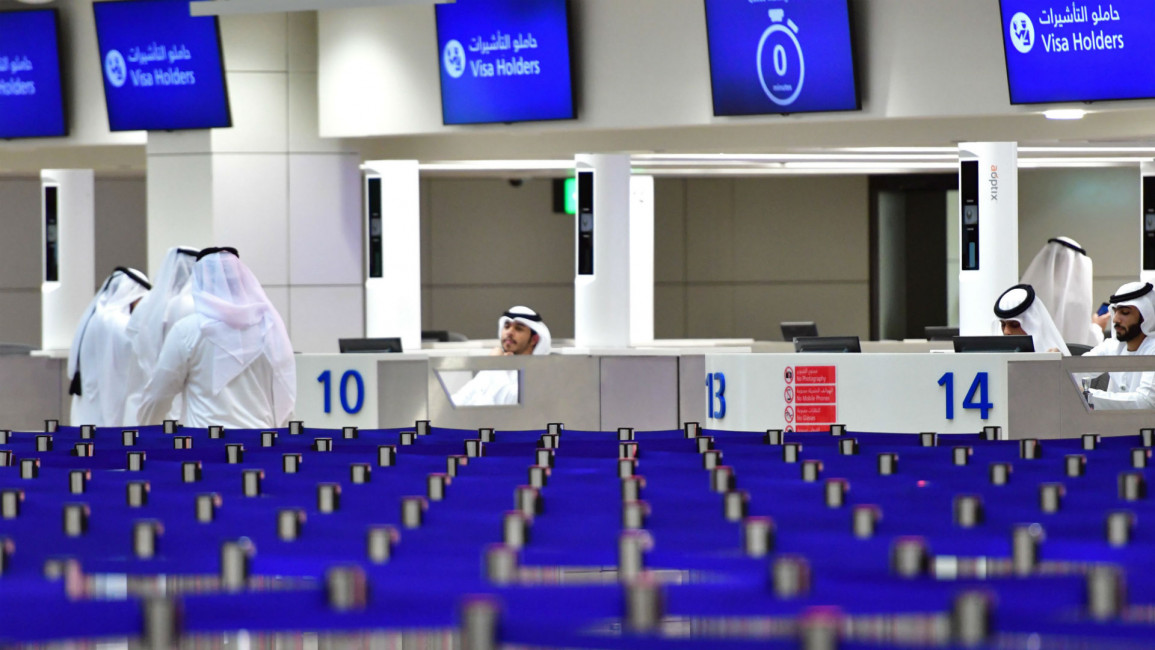UAE to grant VIP residency visas, but only to wealthy expats
UAE to grant VIP residency visas, but only to wealthy expats
The UAE will finally grant visas to retired expats, but only the wealthy will be able to settle.
2 min read
Changes to visa rules will benefit wealthy UAE expats [AFP]
The UAE will grant long-term visas to expatriates who reach retirement age, but only wealthy foreigners will be able to benefit from changes to residency rules. If you're poor, you're heading home.
Abu Dhabi announced that from next year retirees aged over 55 will be able to obtain five-year residency visas, following approval by the UAE cabinet at the weekend.
"We have also adopted a system that allows expatriate brothers to stay long-term after retirement," said UAE Prime Minister and Dubai ruler Sheikh Mohammed al-Maktoum.
The measure comes as the UAE looks for new ways to bring cash into the country, which is still being hit by relatively low oil prices and huge budget bills, mostly to fund the country's generous welfare state for nationals.
Only the wealthiest expatriates will be staying on in the UAE with a number of financial requirements for applicants.
Retirees must have invested 2 million dirhams ($544,510) in property in the UAE, or have savings of 1 million dirhams ($272,255) or earn more than Dhs20,000 ($5,445) a month.
Migrant labourers responsible for constructing the gleaming skyscrapers and the other ostentatious symbols of wealth for which the UAE has become famous will not come anywhere near qualifying under those conditions.
The plan appears aimed at stimulating the UAE economy, by encouraging wealthy retirees to invest or spend their pensions in the Gulf state.
Abu Dhabi is also expected to approve a law allowing 100 percent foreign ownership of businesses.
The UAE has been looking to Europe, China and other Asian economic powerhouses to invest in the country.
Abu Dhabi announced that from next year retirees aged over 55 will be able to obtain five-year residency visas, following approval by the UAE cabinet at the weekend.
"We have also adopted a system that allows expatriate brothers to stay long-term after retirement," said UAE Prime Minister and Dubai ruler Sheikh Mohammed al-Maktoum.
The measure comes as the UAE looks for new ways to bring cash into the country, which is still being hit by relatively low oil prices and huge budget bills, mostly to fund the country's generous welfare state for nationals.
Only the wealthiest expatriates will be staying on in the UAE with a number of financial requirements for applicants.
Retirees must have invested 2 million dirhams ($544,510) in property in the UAE, or have savings of 1 million dirhams ($272,255) or earn more than Dhs20,000 ($5,445) a month.
Migrant labourers responsible for constructing the gleaming skyscrapers and the other ostentatious symbols of wealth for which the UAE has become famous will not come anywhere near qualifying under those conditions.
The plan appears aimed at stimulating the UAE economy, by encouraging wealthy retirees to invest or spend their pensions in the Gulf state.
Abu Dhabi is also expected to approve a law allowing 100 percent foreign ownership of businesses.
The UAE has been looking to Europe, China and other Asian economic powerhouses to invest in the country.



